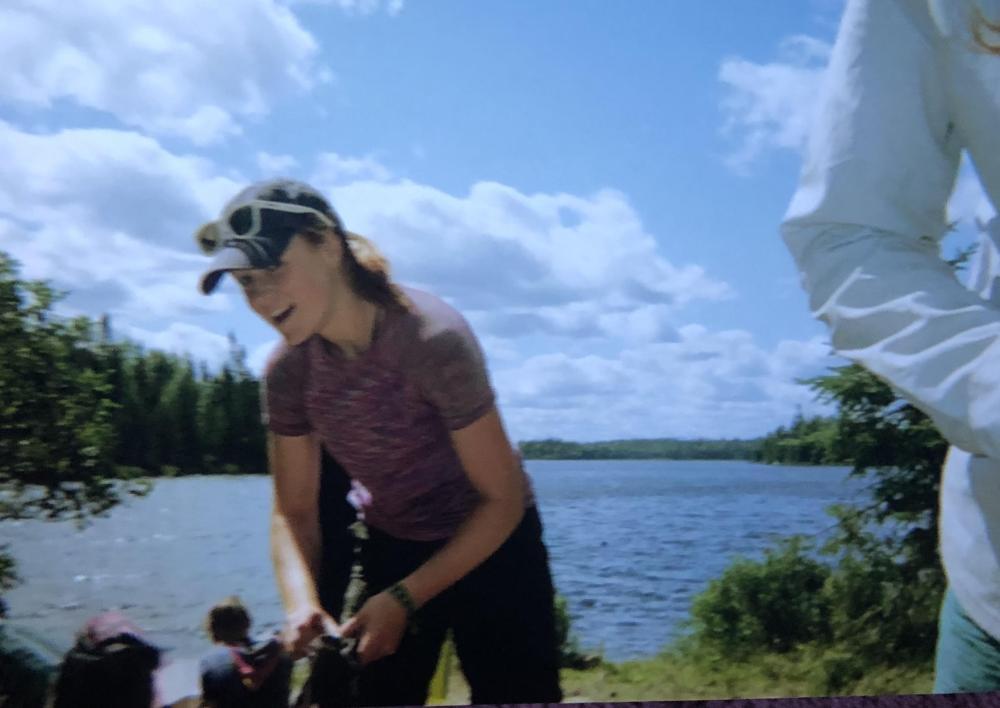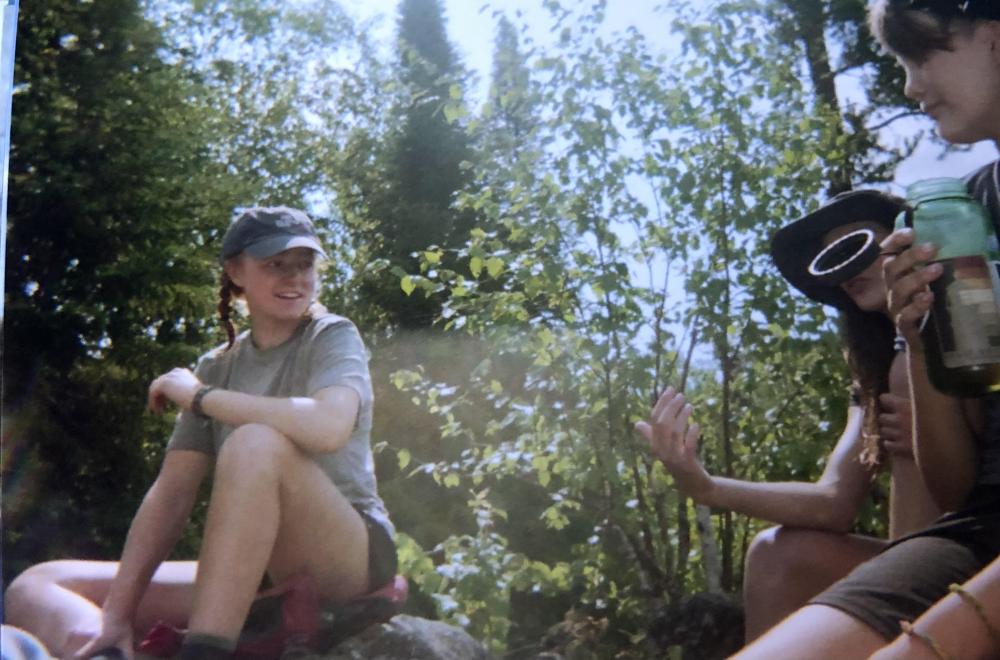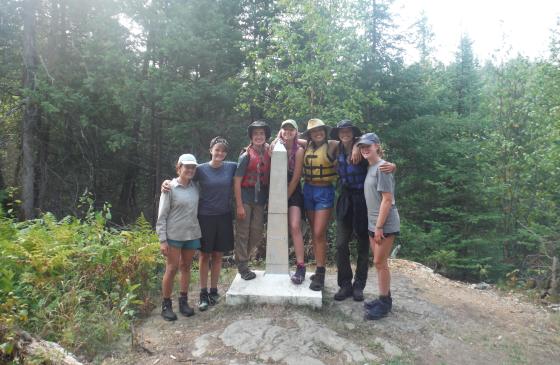Hi everyone! My name is Evy, and I recently got involved with the Save the Boundary Waters campaign. I wanted to share with you all why I think we all need to work together to help protect the Boundary Waters. About 2 summers ago, my friend Keira and I decided to go to Camp Menogyn. I had never been to the BWCA before, but as someone who loves nature and adventuring outside, I was totally up for the challenge of being on trail for almost 2 weeks. At the beginning of August, I packed my bag and drove up north, not knowing exactly what was waiting for me.
The Boundary Waters completely exceeded my expectations. Growing up on Lake Minnetonka, I had always appreciated the beauty of a lake, but the BWCA blew me away. I had never seen lakes that were so calm and devoid of human impact. On the trip, I learned all about what it takes to help conserve this environment. “Grey water,” or dirty dishwater, could not be dumped close to the lake for fear of pollution. I learned the biodegradable 13 in 1 soap that I had brought was not actually biodegradable unless it was used away from the water so that it could be filtered by layers of soil and rock before reaching the lake. Even our food scraps, things that you would think could be left in the dirt since that's where it originally grew, had to be packed out of all of our campsites.
When I was in the BWCA, I experienced pieces of nature that I had never seen before. I got to watch dozens of shooting stars while lying on a rock with my friends, with no light pollution in sight. On our morning canoes, loons could be seen swimming and diving just feet away from my paddle. I went from being freezing one night with a winter hat and jacket on, bundled in my sleeping bag, to not even being able to sit inside that oppressively hot sleep sack the next night.
The trip canoeing in the Boundary Waters taught me so much about myself. I learned that with the right mental attitude, I could push myself to overcome the physical boundaries that I thought I had. I went from barely being able to carry our aluminum canoe for a few minutes to being able to walk 80 rods without stopping. I learned about the importance of working well with others and respecting their boundaries, which helped avoid heated discussions about the placement of our tent when everyone was exhausted from a day of paddling. I also learned about the value of silence. Often times, in our modern world, it is hard to find a break from the commotion around us. When I was in the BWCA, I was able to disconnect from my phone and social media in favor of listening to the music of the waves lapping against the rocks or the trees rustling above my head.
On that trip, Leave No Trace became more than just a saying for me. It symbolized my work to help protect an area that meant a lot to me and thousands of others. Every year, around 250,000 people visit this incredible piece of wilderness. I hope to continue visiting this place in the future so that I can share it with friends and family, but this requires action on our part if we want the area to stay as pristine as the first time that any of us went there. Silfide-ore copper mining threatens the natural ecosystem of the Boundary Waters. If we do not all work together to help prevent these mines from entering the BWCA or any of the areas surrounding it, the magical piece of Minnesota wilderness that I got to explore that summer will be lost forever. I urge you all to join the campaign to Save the Boundary Waters so that we, and future generations, can all enjoy our first or next camping trip in the BWCA.
Evy Engebretson


